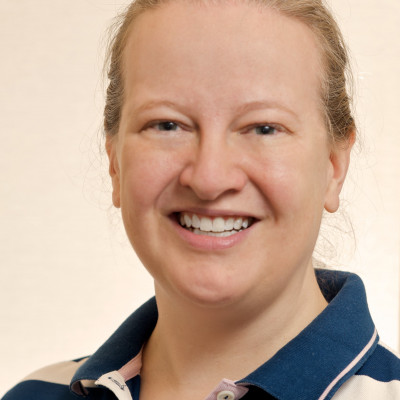Schedule Go Compact (displays all)
You can use Quick Lookup to quickly find sessions. But best is to use the LIVE SCHEDULE during the conference itself.
Please note
This search only includes sessions starting on 8th July [Asia/Tokyo]. It does not include asynchronous sessions.
Online lounge #3293
Meet online participants and some of the conference team.
Ainu Language Learning Through Synchronous and Asynchronous Online Methods #2845
While UNESCO classified the Ainu language as critically endangered in 2009, stakeholders continue to engage in preservation and revival efforts in a variety of capacities. This presentation will focus on an Ainu language class developed in March 2021, amidst the COVID-19 pandemic, adopting a new hybrid style of language learning. The weekly 90-minute class held on Zoom utilizes a long-standing community-based method for adult Māori language learning called Te Ataarangi combined with modern online initiatives. The language teachers and tutors also update self-access revision and study materials weekly on the associated Moodle LMS. The class participants (n=30) include both Ainu and non-Ainu, varying nationalities, young Ainu language and culture apprentices, shopkeepers, school teachers, university professors, university students, museum staff at Upopoy (the Symbolic Space for Ethnic Harmony in Shiraoi, Hokkaido) and other participants dedicated to Ainu language revitalization. The presenters will share the background and methods of the course and highlight the advantages and disadvantages of using Zoom as the main online synchronous learning tool. Functionality of the asynchronous tool, Moodle, will also be detailed, ending with a discussion of future plans for the development of the classes and online platforms.
Using lending history to recommend books for extensive reading #2849
When purchasing new graded readers for a university library, as well as making a varied collection, it is important to consider whether the books will be “popular” or “highly rated” by the students who use the library. The factors that make a book popular may be different for books that are intended to improve English skills. Therefore, using the lending history of books held by a university library, we analyze the factors that make a book popular and derive the criteria for predicting popularity in graded readers. By using these criteria, we can predict the popularity of the books we plan to purchase and so purchase the graded readers most likely to meet the needs of the library’s users. In this study, we use data extracted from an online system which stores the lending history and evaluations of graded readers in a university library, to identify the most popular graded readers and the factors related to their popularity. On the basis of these factors, we estimate an order of priority by performing statistical analysis in order to determine whether the books which the library is planning to purchase will meet the specific needs of the readers who use the library.
Benefits of using Language Learning Histories (LLHs) in teacher training #2975
Successful language learners need to learn beyond the classroom (Richards, 2015). These contexts enable learners to develop and exert their learner autonomy, as they decide what and how to learn. This presentation focuses on experiences with two Malagasy student teachers co-authoring a paper in which they tell their English language learning histories (LLH) beyond the classroom. Beyond the classroom, every learner has their own ways of learning, which may depend on their learning contexts and their motivation and interests. Through writing LLH, the student teachers realized how their interests constantly triggered their motivation to create opportunities to learn outside the classroom, a context where support is scarce. They also became aware of the disconnection between in-class and out-of-class learning content. These experiences helped them reflect on their future practice and how they would like to implement classes. Through the process of writing experiential narratives in the paper, we were able to make some significant insights on the potential benefits of the use of LLH in language learning and teacher training. Accordingly, participants will leave the presentation with a deeper understanding of learner experience and autonomy that can help them in developing practices to facilitate language learning beyond the classroom.
Difficulty estimation method for extensive reading of general english books #2848
Extensive reading (ER) entails starting with simple books (graded readers) and gradually expanding the range of reading to include progressively more difficult books. In Japan, ER programmes often make use of “Yomiyasusa Level” (YL), which indicates a book’s difficulty performed by the subjectivity of Japanese people who have already done a lot of ER. One of the principles of ER is that learners should use the YL scale to choose books at an appropriate reading level. Even after learners have progressed from graded readers, they will still benefit from being able to choose books on the basis of YL, but relatively few non-graded readers appear in YL databases. The goal of this research is to estimate the YL of general English books to which a YL has not yet been assigned. This will also be useful for determining the YL scores of new graded readers and for checking the validity of previously assigned YL. First, we examine the parameters which contribute to YL using a corpus tool called Coh-Metrix, which quantitatively evaluates the linguistic characteristics of a text. Then, we perform a regression analysis using these parameters and estimate the YL of general English books.
Reverse Engineered: Modeling cross-cultural pragmatics with TOEFL iBT tasks #2853
The TOEFL iBT test is designed to measure the likelihood of academic success in English-medium universities attended by non-native English speakers. In order to do well on the test, an understanding of academic vocabulary is important, but so too is a grasp of non-academic vocabulary that is useful in student life. This “college knowledge” is tested in the listening and speaking sections of the TOEFL iBT. Test-takers are asked to demonstrate their understanding of conversations between students and professors, students and university staff such as a librarian, registrar, or academic advisor, and conversations among students. By utilizing TOEFL iBT practice materials and their accompanying scripts, these texts can be reverse engineered to model , instruct, and improve our students’ lexical and cross-cultural pragmatic awareness. This workshop will demonstrate how materials can be exploited to build up useful vocabulary for study abroad (dorm, GPA, transcript, etc.), improve situational awareness through reading, listening, and role-play, and ultimately build up students’ confidence so that they have a degree of “college knowledge” before they set foot on a campus far from home.
Comparing the online and paper-based versions of the TOEIC L&R #2893
Shōzan University (a pseudonym) uses the Computerized Assessment System for English Communication (CASEC) for placement. Students complete the CASEC at home in late March, then the TOEIC Listening & Reading (L&R) a few weeks later once classes have begun. Two cohorts, 2018 and 2019, completed a paper-based version of the TOEIC L&R; however, two cohorts, 2020 and 2021, completed a novel online version of the TOEIC L&R, which reportedly results in similar scores as the conventional paper-based TOEIC L&R (IIBC, 2020). Author (2020) revealed that all cohorts had similar CASEC scores; however, TOEIC L&R scores from the online version were significantly higher than from the paper-based test. Author (2020) also reported on a sub-group (n = 57) who completed both versions of the TOEIC L&R, with online test scores being significantly higher than the conventional paper-based scores. However, the former was completed without proctors. The current presentation will report on a study from February 2022. Participants (n = 80) will complete the two different versions of the TOEIC L&R with participants randomly assigned to two groups (i.e., paper-online or online-paper). Both groups will complete both tests under supervision.
Automatic question generation for an extensive reading placement test #2850
When practiced correctly, Extensive Reading (ER) should enable learners to become more proficient users of a foreign language. The method is only effective, however, if learners read books of an appropriate level, i.e. books which they can enjoy reading without needing to consult a dictionary. Therefore, the Extensive Reading Foundation Placement Test (ERFPT) was developed to measure the reading level of learners. The test employs comprehension questions which have been created by teachers who have volunteered their time to help develop the test. More texts and test items will improve the test; therefore, we propose a system that automatically generates questions and so reduces the burden on those making the test items. The question generation method is based on the way that the test item maker actually creates questions for the ERFPT, in other words through a process of ‘abstraction’. We use a summary created by PEGASAS, which is a transformer model for abstractive text summarization. This presentation will investigate the suitability of this method for generating questions for ERFPT. If successful this method may be used for creation of a variety of comprehension tests beyond ER.
Developing an in-house corpus and high-frequency word list for science majors #2854
This reports on a work-in-progress of the development of an in-house corpus and high-frequency word list of the corpus for a Science and Engineering university in Japan. Students read scientific articles as part of their required English courses. However, in an informal survey, while some students were positive about the prospects of reading specialized academic articles in English, others felt that it would be too challenging. In order to bridge the difficulty gap, an in-house corpus of articles recommended by the science faculty and a high-frequency word list of the corpus are being developed. Interviews and surveys will be conducted with selected members of the science department to understand the nature of articles written in English that these members would recommend for graduate students. The articles will be gathered to create a corpus of one million words, and processed for high-frequency words using AntConc (Version 4.0.2) (Anthony, 2021) a free online vocabulary profiling software. These will be compared against the new academic word list and further analysed for specialized words. The findings will help to construct an informative vocabulary list for the students in graduate school, and in the future, this could be further refined for undergraduate students.
Building Zettelkastens for SLA research and the classroom #2912
In this presentation, classroom applications of the Zettelkasten method will be explored. A Zettelkasten is a personal knowledge management system in which notes are created and assigned to ad hoc categories as they emerge. By creating note slips, either in digital or analog form and subsequently creating links among them, a framework of knowledge can be replicated. By relating ideas to each other, students replicate a train of thought. Zettelkastens provide a place to store and, more importantly, organize knowledge, thereby increasing the quality and quantity of learning. Though this system was first used to develop research ideas, it also has applications in the foreign language classroom to serve as a framework in which the learners organize and consolidate what they have learned. In this talk, the presenter will first provide an overview of the literature on Zettelkastens and then demonstrate how to implement this system and apply it to research and, more importantly, the classroom. Finally, learners’ subjective feedback on the effectiveness of this classroom practice will be addressed.









